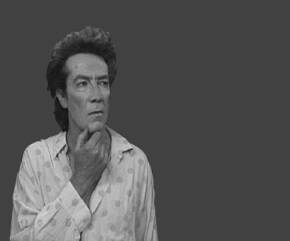Willing, Reader, Willing

my feet are going to get
cold but I forget them
I am up early / I am
up late
very much
the same
don't you find -
you, who
are always
out there? - I watch
till like my feet
I forget play
a tape quietly
of Wayne Shorter
- Ju Ju - read
poems of Frank O'Hara,
some of Meaghan - "mixity"
is that a word? why not "mix"?
now my feet are truly cold
as the house awakes & I forget
again their fate
—the fate of
my feet—
which is a little bit
my fate - brrr - which is also
to Make that toast, make that
tea & take them to you -
your cool face your warm feet -
hi
We Meet Again, Traveller
I’m sitting at an outdoor table
in a tiny square in Trastevere.
On a table nearby a pigeon stands
regarding me with an air
of slightly tried patience—
as if to say “I know
what I am going to say
will seem obvious.” His glare
takes me into his confidence—
& he does speak: “I see
you are reading the TLS,
thinking about 19th century Parisian authors—
sitting here in Rome, an Australian.
Go home!
Though where is home for you?
I myself am from Perugia,
& Arezzo. Some years ago
I spoke to you there.
Where has it got you, poetry?
I despair of you frankly.
Tho despair is not my point
or 'suit'. (I wear it lightly.)
You will be gone:
I will stay—
in Rome, anyway."

 (And, sotto voce:)
(And, sotto voce:)
you leave, on your table,
you’re leaving it?—it’s mine, ta.”
And with that he flew away. (I
caught the plane out of Rome
later—but I had
always been going to go.)
Poem ("I do a drawing …")
I do a drawing
from a photograph
of Jimmy Rushing arriving in New York
—or Chicago :
maybe that is the 'El'
going overhead.
He looks great
in the photo
and okay in the drawing
so I spray the drawing with fixative
& think about
going into town
for a drink
this thing completed making
me suddenly feel good,
as good as Jimmy looks to feel in the photograph.
I put my watch on & take it off
(thongs too)
& sit again at the desk
where a clipping George sent says: Otis Rush
backed by * the Hounds * live * at the Village Gate *
beside a small picture of Otis
looking pretty heavy, & pretty classy,
& dude-ish too. A
high-contrast tone dropout
it stands against a small dish with paperclips
& buttons in it & a tiny artificial flower—
cream-yellow petals—
from Hazel's dress.
There, too, beside a patch of
bright red on something is a large badge
that belonged to my paternal grandfather
it's cream, with a little shot of him on it
his ID, for his job
minding American ships
during WW II
a nightwatchman
he stares back balefully, looks like me,
though a tougher guy.
He hated yanks.
Yanks were who
he was tough to.
Though I heard a story
about diving into the water
to save a Swede
he'd punched out.
Tucker Bolton.
I guess he'd lost some weight
by the time this photo was taken—
the only one I have of him.
He died soon after— in the war —a heart attack
getting up one night to go & mind the wharves
I never met him.
He looks like me
on my last book of poems.
Between him & me
stands my father.
I feel my features
merge back through his, my father's, to those of the man
on this badge—a mug shot, head & shoulders,
he stands in front of a grid of
heights, and is my height I can see, a shade
under the line that indicates 5 feet 9.
His name is a line under him Thomas B Bolton
& under this April 14, 1943, B.
around the photo lots of USA initials, the
words Civilian Personnel, & his number
B 2431.
I am Ken Bolton & live in Adelaide
a poet, heir
to the toughest man in Double Bay & Edgecliff
back then,
the father of my father.
Both of us violent.
In a way that never gets expressed—
even through violence.
I look at the tiny photograph.
1989. From his eyes to mine
something I can identify with.

